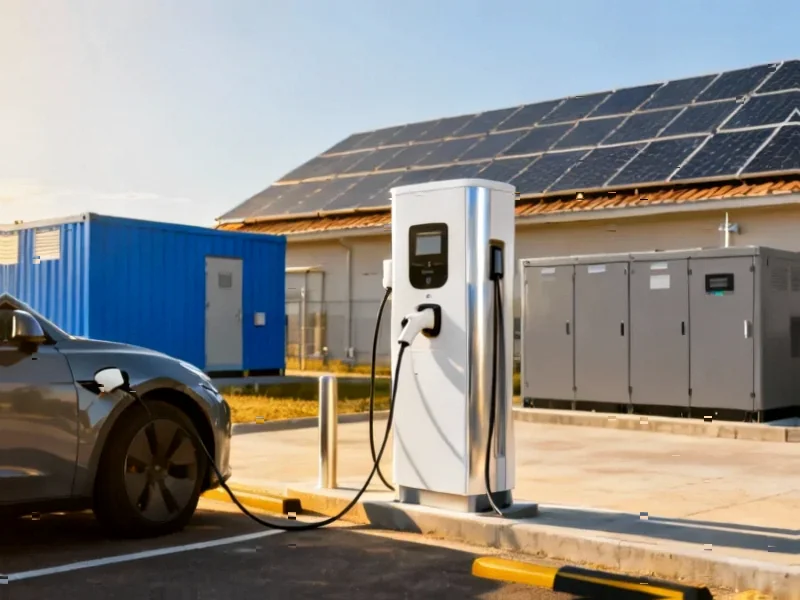According to Innovation News Network, the UK government is injecting £10 million into developing off-grid EV charging stations that can operate without large grid connections. The funding targets England’s strategic road network of motorways and major A-roads, requiring each project to provide ultra-rapid charging for at least 12 EVs simultaneously, delivering 120-145 miles of range in just 15 minutes. UK Minister for Aviation, Maritime and Decarbonisation Minister Keir Mather emphasized this complements existing initiatives like the £650 million Electric Car Grant that has already supported over 25,000 drivers with discounts up to £3,750. This strategic move signals a fundamental shift in how the UK approaches EV infrastructure challenges.
The Infrastructure Investment Gap
This £10 million allocation represents more than just funding—it’s a recognition that traditional grid-dependent charging models have fundamental limitations. The UK’s grid infrastructure, particularly in rural areas, wasn’t designed to handle the concentrated power demands of multiple 350kW ultra-rapid chargers. Grid upgrades can cost millions and take years, creating bottlenecks that threaten the government’s 2030 ICE phase-out targets. By focusing on off-grid solutions, the government is essentially creating a parallel infrastructure development path that bypasses these constraints entirely.
Winners and Losers in the New Charging Economy
This initiative creates clear market winners beyond just EV manufacturers. Companies specializing in solar integration, battery storage systems, and microgrid management suddenly have a £10 million validation of their business models. Traditional charging operators who’ve focused exclusively on grid-tied solutions now face competitive pressure to diversify. The requirement for 12 simultaneous ultra-rapid charges means we’ll likely see consortium bids combining charging expertise with renewable energy specialists. Smaller, innovative firms that couldn’t compete with giants on grid connection costs now have a viable pathway to market entry.
Solving the Range Anxiety Equation
The psychological impact of this initiative cannot be overstated. While most EV charging occurs at home, the fear of being stranded on long journeys remains a significant adoption barrier. By strategically placing these off-grid stations along motorways and major A-roads—the very routes where range anxiety peaks—the government is attacking the problem at its source. The 15-minute charge time for 120-145 miles of range isn’t just convenient; it’s psychologically transformative. It turns what many perceive as a multi-hour inconvenience into a brief coffee break, fundamentally changing the long-distance EV experience.
The Real-World Deployment Hurdles
While the vision is compelling, the execution faces significant challenges. Off-grid systems require substantial land for solar arrays and battery storage—premium real estate along motorways isn’t cheap or readily available. Maintenance of these distributed systems will be more complex than centralized grid-tied stations. There’s also the question of reliability during extended periods of poor weather when solar generation drops. The government’s success will depend on whether private operators can develop solutions that are not just technologically feasible but economically sustainable without ongoing subsidies.
Ripple Effects Across the Energy Sector
This initiative has implications far beyond transportation. Successful off-grid charging stations could become distributed energy assets that actually support the grid during peak demand. The battery storage required for these sites represents significant grid-scale storage capacity that could be leveraged for grid services. This approach also creates a template for other countries facing similar infrastructure challenges, potentially positioning UK companies as global leaders in off-grid charging solutions. The timing is particularly strategic as energy security concerns grow amid geopolitical instability.




